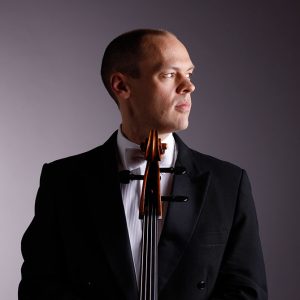
When the Music Stops
Brant Taylor
For those of us for whom a musicians’ work stoppage in the Chicago Symphony Orchestra was something we’d read about in histories of the orchestra but had never experienced in real life, the e-mail message we received last Saturday was a bit of a shock: we were on strike. Much of the “what” and “how” has already been disclosed elsewhere by both sides, so I won’t go over that here. Fortunately, the work stoppage was short-lived—about 48 hours—and the musicians have now ratified a new contract that will allow our season to proceed without further disruption.
Any orchestral musician who has been through tough negotiations will agree that they’re strange times. An orchestral organization is tiny compared to the global business corporations in the for-profit world that deal with large national or international labor unions all the time. The managers of an airline, for example, may not care who sits in the cockpits of their aircraft fleets as long as the planes are flown safely and on time. And the pilots may have no idea who management is beyond a vague picture of an administrator in a shiny downtown skyscraper.
But unlike the typical corporate model where management hires unionized labor to manufacture a product, in our world, the labor is the product. Our patrons don’t just come to hear the music, they come to hear this particular group of people play the music.
Over the years, our relationship with those patrons, and with our management staff, evolves into friendship and family. We share meals, we see their kids grow up, we play chamber music in their living rooms. I count many of our orchestra’s management staff and Trustees among my friends. On tours—on buses, on airplanes, backstage in strange halls, at hotel lobby bars after the end of evening concerts—they feel like roommates. There’s something that creates a special bond about traveling as a group with them on overnight transcontinental flights, as we often do, getting off airplanes and then riding in buses, sometimes for hours—tired, sweaty, wrinkled and without having brushed our teeth—to our hotel and our first shower of the day. “Management” and “labor”? No, those wouldn’t be the words I’d choose to describe what we represent to each other.
And yet, when negotiating time comes, they must sit across the table from us, proverbially and literally. It all feels very “under one roof.” Ironically, perhaps, it is that special bond between musicians, music director, management, board members and patrons that makes this particular organization perform at the level that it does, both on and off the stage.
Hopefully, all the parties in any orchestra contract negotiation have the same goal: to lead, or continue to lead, the organization along a path to success, even where there’s a difference of opinion about some of the turns involved in getting there. I’m convinced that our dispute didn’t last more than it did because everyone recognized that getting the musicians and our music director to continue the superlative collaboration we’ve enjoyed sharing with our patrons is too important to interfere with for too long. It’s a unique situation to which the standard words and actions of the for-profit corporate model can’t and shouldn’t be applied.
One more thing. By definition, a strike is disruptive, polarizing and public. It affects our patrons. It reveals disagreement within the institution. It is observed closely by our colleagues in other orchestras as well as bloggers, writers and commentators in the classical music media world.
Not surprisingly, everyone—and I mean everyone—has an opinion, and the internet allows anyone with a computer and a connection to express it for many other people to see. Aside from many comments reflecting support for the musicians, I read others from people questioning the decision to strike in the current economic climate and wondering why the musicians would strike at all since our working conditions in Chicago are already among the top tier in the orchestral world.
The temptation to make judgments about our situation without having any firsthand knowledge of the facts may have an irresistible pull. My intention in posting here is not to respond to the various conclusions drawn by those looking in from the outside. Every situation has its own facts and circumstances, and the tangible and intangible factors that led both to the decision to strike and to its speedy resolution are really only truly known to those around the negotiating table. As they say about marriage: only the two people in it really know what happens behind the doors after they close.
This, however, is plain as day to everyone, or should be: nobody in an orchestral organization relishes the idea of negotiating strife, least of all the people involved. It takes time and energy away from what the organization lives to do, which is to present music making at the highest possible level and share it with our audiences.
Subjects: Artistic Vision, Orchestra
